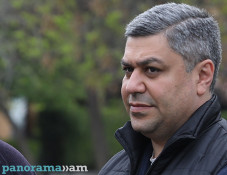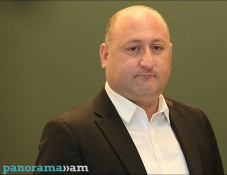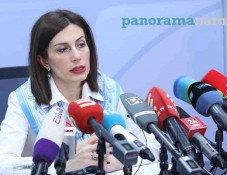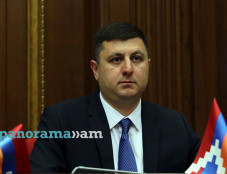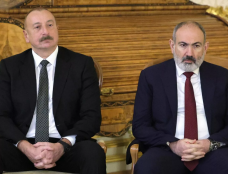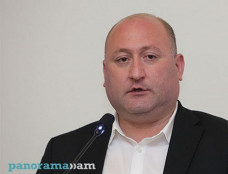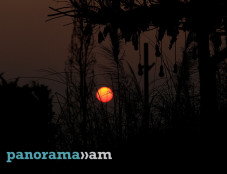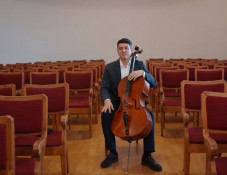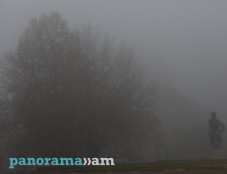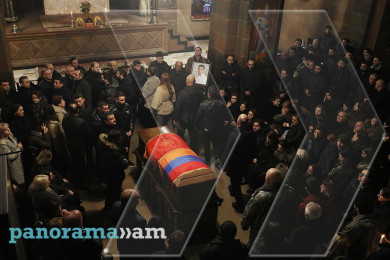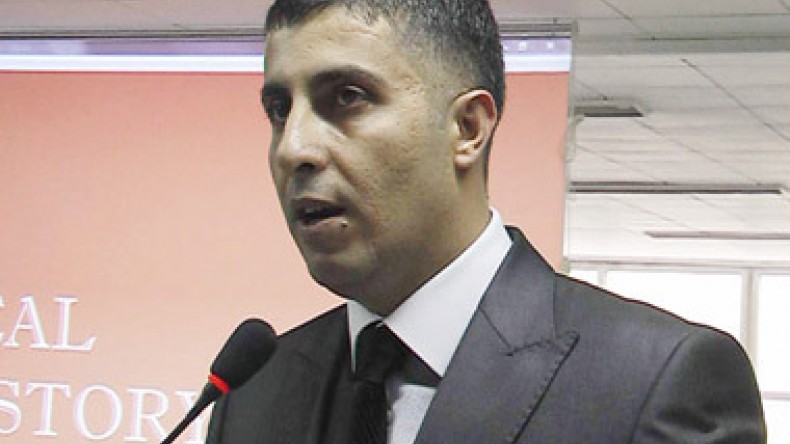
Turkey: Child abuse scandal puts spotlight on prisons
An unofficial Turkish parliamentary investigation into physical and sexual abuse of Kurdish children in juvenile detention centers is raising rule-of-law concerns in Turkey, EurasiaNet.org reported.
The unofficial probe, conducted by members of the pro-Kurdish Peace and Democracy Party (BDP) and the Kemalist Republican People’s Party, found that 25 out of 215 inmates sentenced recently under anti-terror laws to the Pozanti Juvenile Detention Center in the Mediterranean city of Adana reported rape and regular beatings at the hands of prison guards and other inmates. The youngest such victim was 12 years old.
Nearly all the allegedly abused children were detained for either illegal assembly or throwing stones, according to BDP MP Ertuğral Kürkçü, a member of the investigative team that presented its findings earlier this month. "They [security forces] deliver them to the prison and they have code words when they hand them over. They say, ‘This is a relative; treat him nicely,’ and this means, ‘Rape him.’ We heard many reports of children being raped,” Kürkçü recounted to EurasiaNet.org.
The Human Rights Association, a Turkish watchdog group, said it had informed the Ministry of Justice about the situation at Pozanti seven months ago. Kürkçü claims that local officials have been aware of abuse allegations for more than a year.
The revelations about the Pozanti facility is a source of concern for hundreds of people, including children, who were detained during the past week amid violent clashes with police over the early start of celebrations of the Kurdish New Year, or Newruz, on March 21. Authorities tend to see unauthorized gatherings as potential attempts to foment unrest.
The public outcry over the abuse issue prompted officials to temporarily close the Pozanti facility and transfer its 215 inmates to Ankara’s Sincan Prison. A Justice Ministry report recommended the prosecution of four current and previous directors and deputy directors at Pozanti, as well as 18 inmates. Charges were not specified.
"Every single allegation will be investigated. We will not tolerate the slightest negligence or abuse of power. We will resort to other measures if necessary,” said Justice Minister Sadullah Ergin at a March 4 press conference.
Ergin has promised that all reported cases of abuse are being thoroughly investigated.
The scandal came to light after an interview earlier this month appear in the Taraf newspaper with a former Pozanti prisoner. The prisoner, identified only as “FG,” claimed that he had been “terribly beaten” by prison guards when he first arrived, and subsequently raped by an older boy prisoner.
“Several other boys were raped, too. One tried to commit suicide,” he alleged. “Every day I had the fear of rape and beatings by the guards.”
Kürkçü believes that similar patterns of abuse can be found across Turkey’s southeastern Mediterranean region, where considerable ethnic tension exists. "All the children complain that the torture and maltreatment starts when they are first taken into police custody,” Kürkçü told EurasiaNet.org.
“Then they are taken to a local prison, which is under the control of the gendarmerie [the armed forces’ police service – ed],” Kürkçü added. “Then, they are stripped naked and again beaten. They are kept naked for three or four days without food and water."
Arif Akkaya, a founding member of the Justice for Children Initiative, an organization set up by parents of imprisoned Kurdish children, asserts that the Mediterranean area contains “the most traumatic cases” of abuse of juvenile Kurdish detainees.
"In the Kurdish region [in southeastern Turkey], authorities are softer. They are Kurdish; they are from the area,” he said. In cities to the West, however, prison officials, usually ethnic Turks, “see [the children] as terrorists,” he claimed.
In 2011, the government amended its anti-terror laws to end the practice of handing out the same punishment to child and adult prisoners. Placing children in adult jails was also ended. But the latest scandal is putting the spotlight back on government practices.
Human Rights Watch’s Turkey researcher, Emma Sinclair Webb, believes the abuse accusations reveal a fundamental weakness in the Turkish penal system -- a lack of oversight.
"It is a very un-transparent system, so no civil society organization can go into prisons,” Sinclair Webb commented. “You, of course, have inspectorates in prisons, but the recent problems that have come out about sexual assaults of children and violence against children demonstrate that basically there is not enough oversight."
While the government has tried to defuse anger arising from the abuse scandal, some activists worry about reprisals against whistle-blowers, in particular those who spoke out about prison abuse. After his interview with Taraf, “FG” was allegedly detained again, this time for attending an illegal protest in 2011. He is currently in a juvenile center. His father claims that his son is again subject to abuse and has attempted suicide, Taraf reported on March 25.
Parliamentary deputy Kürkçü claims that conditions remain poor for Kurdish juvenile detainees. At the Ankara prison, the Pozanti detainees “have been badly beaten,” BDP members have been told, he alleged. “Those who spoke out have been threatened. They said they have been told if they continue complaining, what happened to them in Pozanti will happen again."
At a March 7 press conference, Turkish President Abdullah Gül praised the government’s response to the allegations. The president asserted that nothing in the “new Turkey” could remain hidden, and officials have taken the necessary steps to prevent the reoccurrence of such abuse.
Newsfeed
Videos





